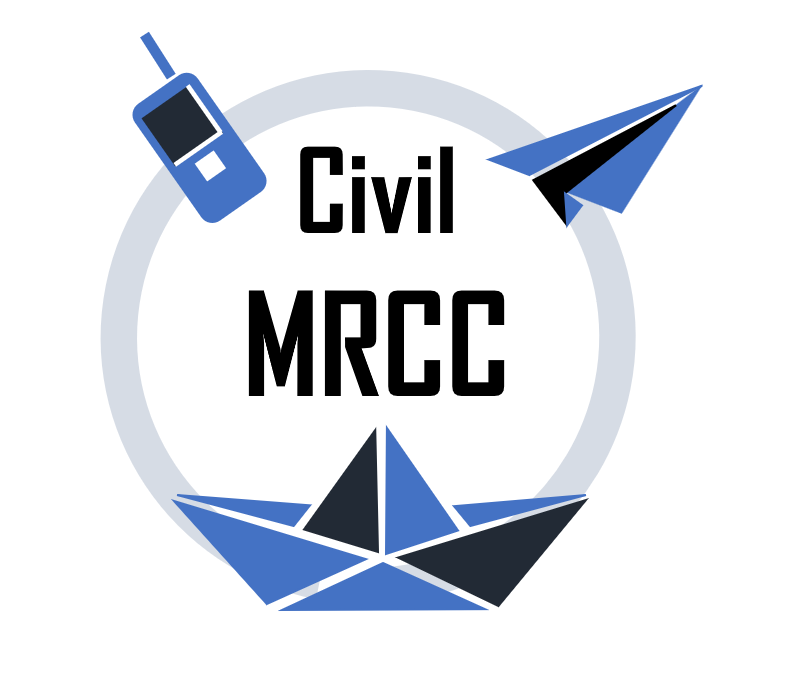By the Civil MRCC legal team
On 29 December 2023, a group of civil society organizations – Associazione Studi Giuridici per l’Immigrazione (Asgi), Comitato Nuovi Desaparecidos, Open Arms, Progetto Diritti, Sea Watch, Mediterranea Saving Humans, Jl Project e WatchTheMed Alarm Phone – submitted a criminal report to Rome Prosecutor about the so-called “Vos Triton case”.
The case dates back to 2021, when on 14 June a group of about 170 people in distress were rescued by the Vos Triton – a merchant vessel belonging to Vroon shipping company – and then handed over to the so-called Libyan coastguard and returned to Libya. Since Libya could not be considered a Place of Safety, the fact that people were returned there, did not allow the completion of the rescue operation.
In fact, according to international maritime law, “a rescue operation is considered completed once shipwreck survivors are disembarked in a place of safety” (SOLAS Convention, chapter 5, regulation 33), which should be “a place where the survivors’ safety of life is no longer threatened and where their basic human needs (such as food, shelter and medical needs) can be met. (…)”(Annex to the 1979 SAR Convention, 1.3.2.).
On the contrary, the 14 July case could be considered a pushback by proxy, or a capture – leading people to be forcefully brough back to a place where they would have faced unlawful detention and exposed to torture, indiscriminate violence, rape and other forms of inhuman and degrading treatments. Their right to leave any country – including their own – was violated, as well as their right to seek asylum and the non-refoulement principle.
The 170 people intercepted by Vos Triton were fleeing from Sudan, South Sudan, Eritrea, Ethiopia and many other countries – where many of them had been forcibly returned by Libyan authorities as victims of chain deportations – and had started their courageous and dangerous journey by boat in Zuwarah, Libya most probably a few days before the event.
During the night of 13-14 July, they called Alarm Phone for the first time while drifting in international waters with a broken engine. Despite repeated emails and calls by the Alarm Phone to all SAR authorities – with the UNHCR copied into emails – even ten hours after the first alert, no state rescue asset had intervened yet. Around 12 AM, the Italian Ministry of Defense had communicated that a cargo ship was on its way to rescue the people but unfortunately, after the Vos Triton reached the scene, no rescue was carried out.
The arrival on scene of the merchant vessel Vos Triton – as well as the subsequent operations which led the people to be pushed back to Libya – were accurately documented by Sea-Watch’s civilian reconnaissance aircraft Seabird: 8 people from the overcrowded boat jumped into the water to try and reach the Vos Triton by swimming, after which the others were taken onboard. The Vos Triton then stopped next to the so-called Libyan coastguard’s vessel Zawyah with the intention to deliver shipwreck survivors to Libyan authorities.
Despite several attempts both by Alarm Phone and Sea Watch to reach the Vos Triton via radio and despite the many emails and phone calls to the company, the handover took place, as also confirmed and condemned by IOM and UNHCR.
Over the past months, the investigative journalist Matthias Monroy has demonstrated the involvement of the Frontex Agency’s aerial assets in the Vos Triton pushback. The obtained Whatsapp communication between the EU Agency and the so-called Libyan coastguard shows how the first alerted the second by writing, “Good morning sir. We have a boat adrift,” and sharing visual materials of the boat in distress.
Based on the joint reconstruction of the event by Alarm Phone, Sea Watch, and Mediterranea – and in light of the applicable legal framework on international maritime law, human right law and asylum – the group of civilian search organizations asked the Rome Prosecutor to request further investigation into the event, in order to assess possible crimes and those who committed them.

Over the past two years, civil society organizations who critically observe and intervene in the central Mediterranean Sea have widely documented the different governmental strategies aimed at carrying out interceptions at sea and forced returns to Libya and Tunisia. Despite the Naples Court’s decision in the case of the Italian flagged merchant vessel Asso 28 – then confirmed in appeal – which accused the captain of the merchant vessel of “arbitrary abandonment,” a crime punished by the Italian naval code, private and commercial actors in the Central Mediterranean continue to “obey to unjust orders” and refuse to carry out rescue activities; to stand by boats in distress without rescuing while waiting for the so-called Libyan coastguard to arrive on scene; or to directly perform pushback by proxy.
The increased involvement of private actors to carry out EU’s “dirty job” – as in the well documented cases of pushbacks performed by the Tareq Ben Zayad vessels – has the same goal of externalization policies, namely that of blurring states’ responsibilities and avoiding direct accountability for sea crimes.
We will not stop documenting these forms of border violence and seeking accountability and justice for these violations!



